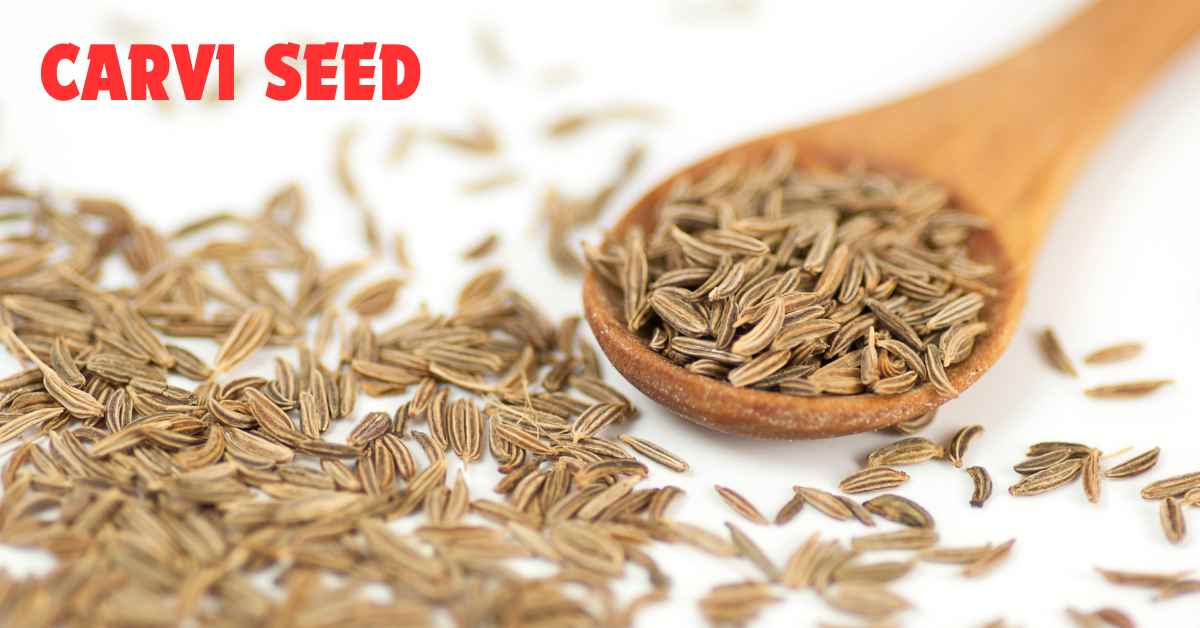It is also known as caraway seed, has been widely used for centuries due to its medicinal, culinary, and aromatic properties. This small yet powerful seed is packed with health benefits and is a common ingredient in many dishes, particularly in European, Middle Eastern, and Indian cuisines. In this article, we’ll dive deep into what is, its history, benefits, uses, and why it’s a staple in kitchens and herbal medicine.
What is Carvi Seed?
Origin and History
Its come from the plant Carum carvi, a member of the Apiaceae family, which also includes parsley, cumin, and fennel. Caraway has been cultivated and used in Europe, Asia, and North Africa for thousands of years, with evidence of its use found in ancient Egyptian tombs. The name “carvi” comes from the Latin word carum, meaning cumin, due to its similarity in taste and appearance.
Appearance and Taste
Its are small, crescent-shaped, and brownish with a slight ridged texture. They have a strong, distinctive flavor, which can be described as a mix of anise, fennel, and dill. Their pungent aroma makes them popular in both savory and sweet dishes.
Health Benefits of Carvi Seeds
It is not only used in cooking but are also known for their extensive health benefits. Rich in essential oils, vitamins, and minerals, they are considered a natural remedy for many ailments.
1. Aids in Digestion
One of the most popular uses of its relieve digestive issues. The seeds have carminative properties, meaning they help to prevent and reduce gas in the intestines. They also stimulate the production of digestive enzymes, which can enhance digestion and reduce bloating.
2. Reduces Inflammation
They are known for their anti-inflammatory properties, which can help with conditions like arthritis and other inflammatory diseases. The essential oils in the seeds, especially carvone and limonene, work to reduce inflammation in the body.
3. Supports Weight Loss
Due to their digestive-enhancing properties, it may aid in weight loss. They help to boost metabolism, reduce appetite, and prevent excessive fat storage. Consuming caraway seed tea is a traditional remedy for weight management.
4. Improves Respiratory Health
The essential oils in the act as expectorants, helping to clear the respiratory tract. They can be useful in treating conditions such as bronchitis, asthma, and colds. Consuming carvi tea or inhaling carvi seed vapor can provide relief from congestion and respiratory issues.
5. Boosts Immune System
they are rich in antioxidants, which help protect the body from free radicals and oxidative stress. This boosts the immune system and reduces the risk of chronic diseases like heart disease and cancer.
6. Promotes Healthy Skin
Thanks to its anti-inflammatory and antimicrobial properties, people can apply the oil topically to treat skin conditions such as eczema, psoriasis, and acne. It helps soothe irritation and reduce redness, promoting healthier skin.
7. Relieves Menstrual Discomfort
It is a natural remedy for relieving menstrual cramps and discomfort. Its antispasmodic properties help relax the muscles, reducing the intensity of cramps. Drinking carvi seed tea can provide relief during menstruation.
Read Next: Friday Fig: A Deep Dive into the World of Figs
Culinary Uses of Carvi Seeds
It is incredibly versatile and can be used in a wide range of dishes. From breads to soups and even desserts, these seeds add a unique flavor and aroma that enhance any meal.
1. Baking
One of the most common uses of carvi seeds is in baking. They are a key ingredient in rye bread, giving it a distinctive taste. Its can also be added to scones, crackers, and biscuits for a hint of spice.
2. Savory Dishes
It can be used in savory dishes such as stews, soups, and casseroles. They pair well with meats, especially lamb and pork, as well as with root vegetables like potatoes and carrots. The seeds can be used whole or ground, depending on the recipe.
3. Spice Mixes
People often include the spice blends such as Garam Masala in Indian cuisine and Za’atar in Middle Eastern cooking. They use these spice mixes to season a variety of dishes, including grilled meats, salads, and rice.
4. Pickling and Fermentation
They are commonly used in the pickling process for vegetables such as cucumbers and cabbage (in sauerkraut). The seeds add a tangy flavor that complements the fermentation process and enhances the taste of pickled foods.
5. Beverages
It can be brewed into teas or added to alcoholic beverages such as schnapps and aquavit. These drinks are popular in Scandinavian countries, where carvi is a key flavoring ingredient.
How to Use Carvi Seeds in Daily Life
Incorporating carvi seeds into your diet or daily routine is easy and beneficial. Here are a few ways you can use them for both culinary and medicinal purposes:
1. Carvi Seed Tea
One of the simplest ways to enjoy the benefits of carvi seeds is to brew them into tea. Add a teaspoon of carvi seeds to a cup of boiling water, let it steep for 5-10 minutes, and enjoy. This tea can help with digestion, respiratory health, and weight loss.
2. Carvi Seed Oil for Skin
Its oil can be used topically for treating skin conditions. Mix a few drops of the oil with a carrier oil like coconut or olive oil and apply it to the affected area. This can help reduce inflammation, redness, and irritation.
3. As a Spice in Cooking
Add your meals by incorporating them into spice rubs, marinades, or sauces. Their flavor pairs well with meats, vegetables, and grains, adding depth and warmth to your dishes.
4. Carvi Seeds in Baked Goods
For an extra burst of flavor, sprinkle carvi seeds into your baked goods. Whether you’re making bread, cookies, or savory scones, the seeds will enhance the taste and aroma of your creations.
Carvi Seed vs. Cumin: What’s the Difference?
Although the often confused with cumin, they are two different spices with distinct flavors and uses.
Appearance
Its are smaller and darker than cumin seeds, which are lighter in color and have a more elongated shape.
Flavor
Carvi seeds have a sweeter, more anise-like flavor compared to the earthy, nutty taste of cumin.
Culinary Use
While carvi is popular in European and Middle Eastern cuisines, cumin is a staple in Indian, Mexican, and North African cooking. Both can be used in savory dishes, but their flavor profiles differ significantly.
Precautions and Side Effects
While carvi seeds are generally safe for most people, there are a few precautions to be aware of:
1. Allergies
Some people may experience allergic reactions to carvi seeds, particularly if they have a sensitivity to other plants in the Apiaceae family, such as celery, fennel, or parsley.
2. Pregnancy and Breastfeeding
Although people consider carvi seeds safe in moderate amounts, pregnant and breastfeeding women should consult their healthcare provider before consuming large quantities, as it may stimulate the uterus.
3. Interactions with Medications
Carvi seeds may interact with certain medications, particularly those that affect digestion. Always consult your doctor before using carvi seeds if you are on prescription medication.
Conclusion
Carvi seed is a versatile and powerful ingredient that offers numerous health benefits and can be used in a wide range of culinary applications. Whether you’re using it to aid digestion, flavor your dishes, or treat skin conditions, carvi seeds are a valuable addition to your pantry and medicine cabinet. From its rich history to its modern-day uses, carvi seed continues to play an important role in health and cuisine around the world.
FAQs
1. What is carvi seed?
Carvi seed, also known as caraway seed, is a spice derived from the Carum carvi plant. It has been used for centuries in cooking and traditional medicine.
2. How do carvi seeds benefit digestion?
Carvi seeds help stimulate digestive enzymes, reduce bloating, and prevent gas, making them a popular natural remedy for digestive issues.
3. Can I use carvi seeds in baking?
Yes, people commonly use carvi seeds in bread, especially rye bread, and they add them to various baked goods for a warm, aromatic flavor.
4. Is carvi seed oil good for the skin?
Carvi seed oil has anti-inflammatory and antimicrobial properties, making it effective for treating skin conditions such as acne and eczema.
5. Are carvi seeds and cumin the same?
No, carvi seeds and cumin are different spices with distinct flavors. Carvi seeds have a sweeter, anise-like flavor, while cumin has a more earthy and nutty taste.









